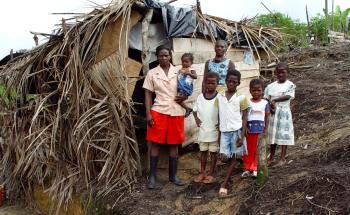
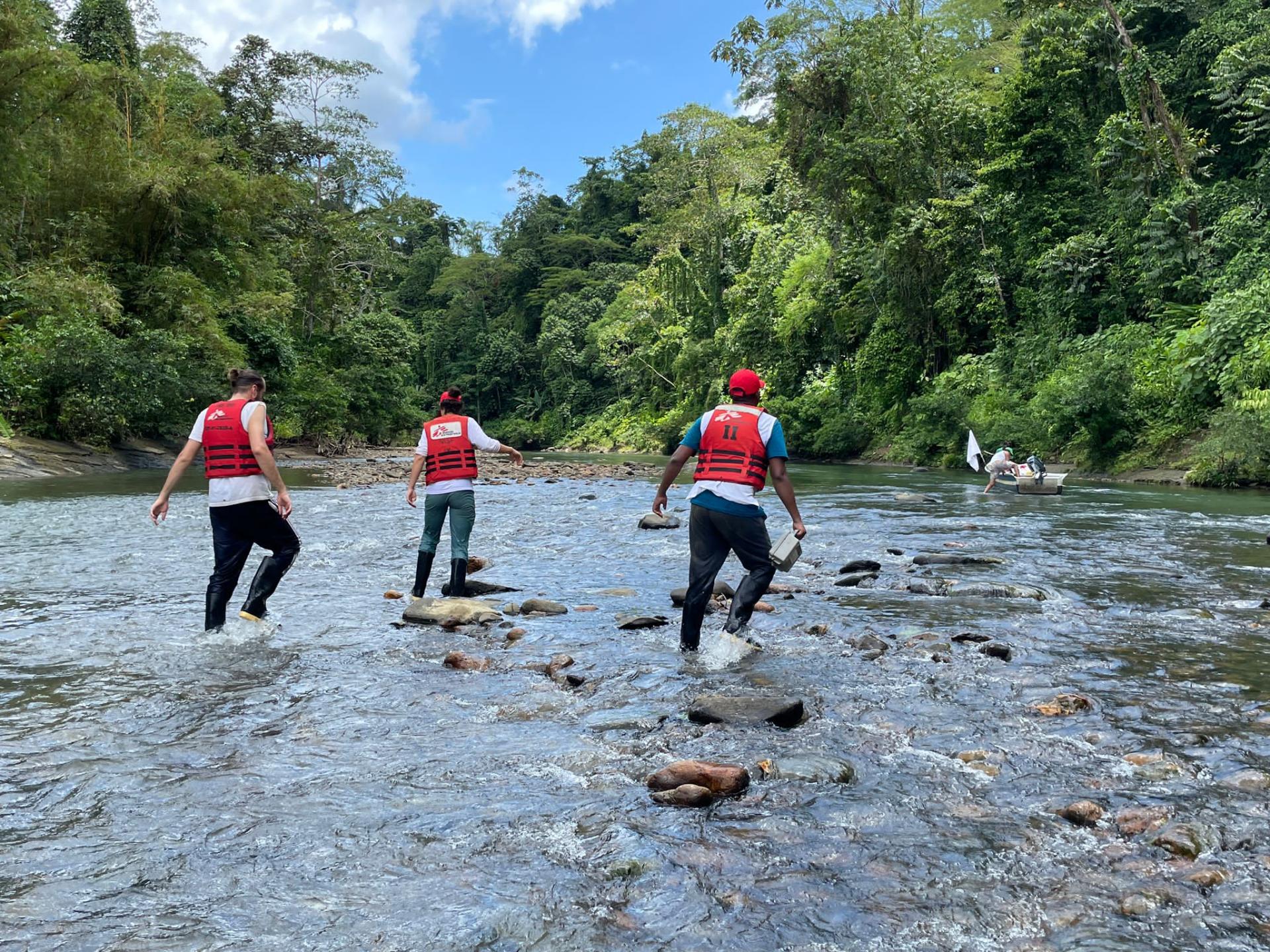
Colombia
As a result of the dispute between different armed groups, thousands of people have suffered violent attacks, while entire communities have been displaced or live for months confined in their homes.
In addition to the humanitarian situation generated by the armed conflict, Colombia has also received a massive number of migrants from Venezuela in recent years, currently hosting more than 2.5 million people, many in precarious situations.
We currently have three projects in Colombia. In Barabcoas, Nariño, we focus on community health; in Alto Baudó, Chocó, our teams are focused on emergency care and community health. In the Darien jungle, on the Panamanian side, we focus on emergency care for thousands of migrants (100,000 from January to August 2022) who cross the tropical forest between Colombia and Panama.
In all of our projects in Colombia, we also include sexual and reproductive health care to guarantee safe abortion for women who need it.
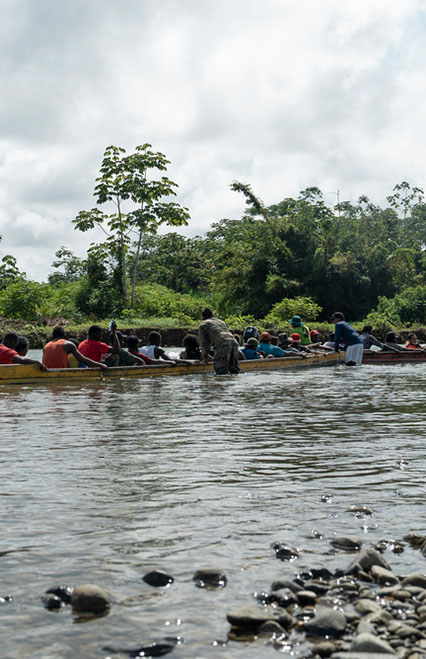
Voices from the field
I see the need for these people to be protected and for the creation of safe routes for migrants.HELMER CHARRIS, MSF PROJECT COORDINATOR, PANAMA
Our activities in 2021 in Colombia
Data and information from the International Activity Report 2022.
95
95
€2.8 M
2.8M
1985
1985
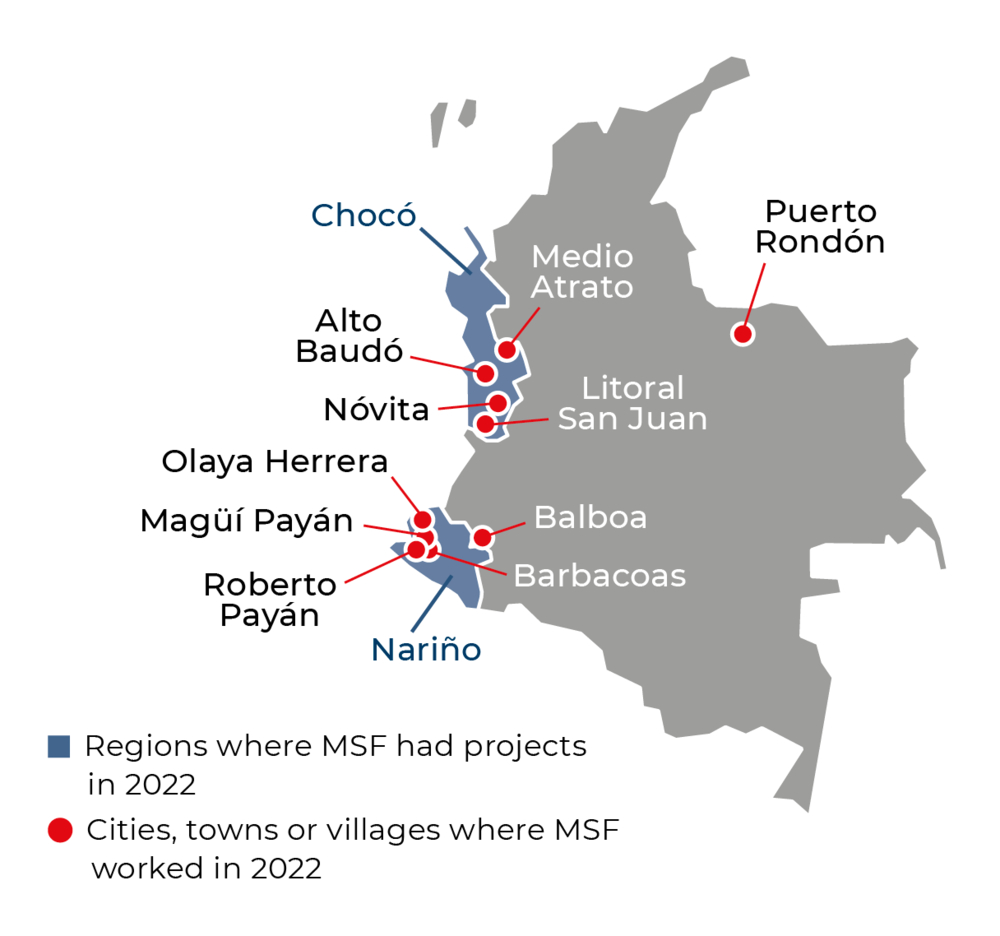
IN 2022

3,600
3,6
550
55
200
2

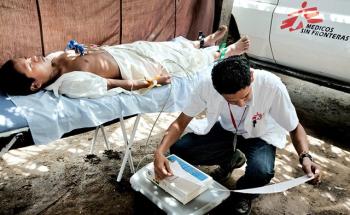
Colombia: MSF provides mental health support to those affected by the attack in the Timba district, in the Cauca region
